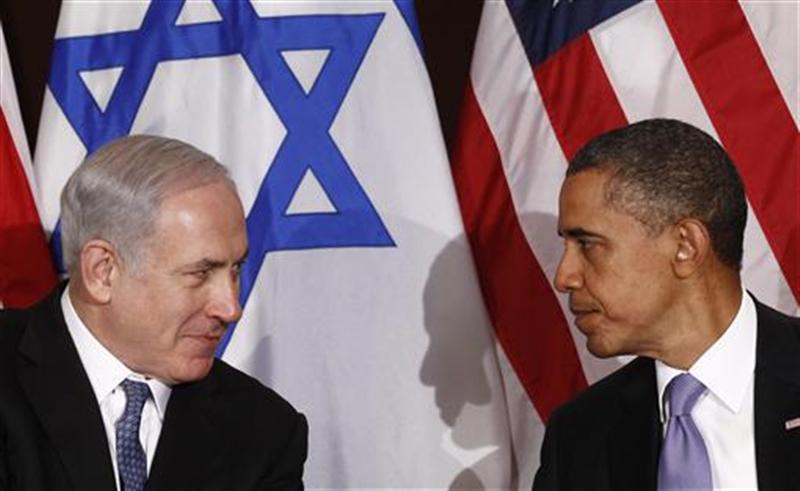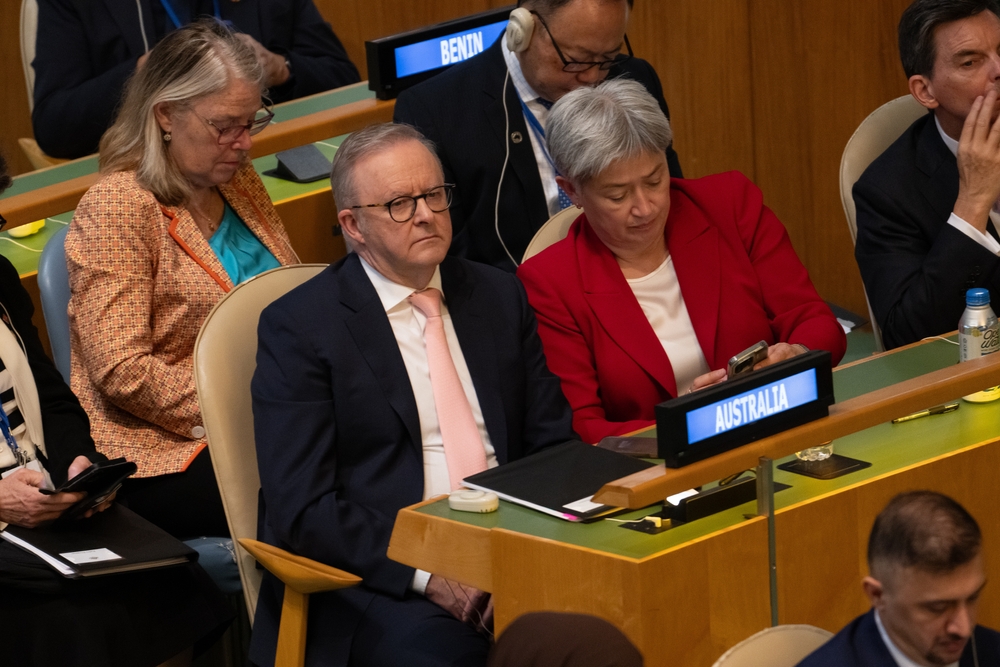UPDATES
Myth and reality regarding US-Israel relations
March 4, 2013 | Talia Katz

The controversy stirred up during the confirmation hearing of US Senator Chuck Hagel, now appointed Secretary of Defense on Feb. 26, has once again opened debate on the relationship between the US and Israel. More to the point, it has prompted detractors to call into question the role of the “Israel Lobby”, and push their claim that this lobby is somehow forcing the US to act against its own interests by maintaining close cooperation with Israel.
Yet it is clear that, regardless of conspiracy theories about all-powerful lobbies, the US-Israel alliance is based on enduring, tangible benefits that have produced far-ranging and comprehensive returns for both Israel and the US. This is clear to the vast majority of policymakers in Washington on both sides of politics.
A good example was revealed by Professor Eytan Gilboa, Director of the School of Communications at the Begin-Sadat (BESA) Centre for Strategic Studies at Bar Ilan University and expert on US-Israel relations, in his interview for the March edition of the AIR.
Gilboa revealed that a “very senior US official” had recently told him,
“‘You know, we’ve got strong relationships with many countries, places like Great Britain and Canada. But we benefit most from our ties with Israel. We get terrific return on our investments, in terms of intelligence sharing, weapons systems research, military doctrine and more.'”
Further evidence comes from a bi-partisan paper co-written by Robert Blackwill, a high-level diplomat and adviser in the Bush Administration and Walter B. Slocombe, a Rhodes scholar who served as undersecretary of Defence for Policy under President Bill Clinton. Together, they laid out an intelligent and pragmatic study of the reality of the US-Israel strategic partnership. Titled “Israel: A Strategic Asset to the United States”, the paper, sponsored by the Washington Institute for Near East Policy, delved deep into what has united the two countries, and showed that petty political differences have had little effect given the enduring common interests which underpin the relationship.
According to Blackwill, the alliance has nothing to do with the politics of either national leader, or what stage the Israeli-Palestinian peace process has reached. “It is meant to be a grander argument,” he says. “National interests don’t change, except over the very long term.”
Author and journalist Lee Smith, writing for Tablet magazine agreed, arguing
“the core of Blackwill and Slocombe’s argument is that the alliance with Israel is vital to U.S. interests regardless of how the Arabs see it, or how it’s interpreted by any given American administration or Israeli government.”
In another Washington Institute study, Michael Eisenstadt and David Pollock demonstrated that the relationship is anything but one sided. In ‘Asset Test: How the United States Benefits from Its Alliance with Israel’, the benefits for the US were spelled out.
Eisenstadt and Pollock agree in their article for Foreign Affairs, that while the relationship may not be symmetrical, bilateral cooperation has meant that the economic, military, and political benefits of the US-Israel alliance far outweigh the perceived cost – “mainly,” they argue, “damage to Washington’s reputation in Arab and Muslim countries, a problem also caused by American interventions and decades of U.S. support for autocratic leaders in the Middle East”.
“The benefits to the United States of its relationship with Israel belie the argument that the alliance is based solely on the two countries’ shared democratic values, on the popularity of Israel in American politics, or on the elusive pursuit of progress in the peace process. It is a relationship based on tangible interests — and will remain so for the foreseeable future.”
This demonstrated that, even by the most cold-bloodedly realist criteria, since the Cold War, Israel has been a significant and important strategic ally and asset for the US. Today, in a post 9/11 environment, Eisenstadt and Pollock’s paper makes the case that this is even more relevant.
“[T]he US faces a changed, more complex security environment. It is defined not only by the ‘hard’ security challenges posed by terrorism and conventional/hybrid military threats, but also by new and emerging ‘soft’ security challenges related to economic competitiveness, the information technology revolution, sustainability (i.e. water and food security, and the quest for energy alternatives), and public health. Israel is one of the few countries positioned to help the United States deal with both these traditional and emerging security challenges.”
In the specially designed infographic that accompanies the paper (click on thumbnail to open below), the value to the US of the relationship with Israel is quantifiably demonstrated. Among the many benefits for the US it notes are:
– 25% of US exports to the Middle East go to Israel.
– US support for Israel has not sullied its trade, military, education and diplomatic ties with Arab nations
– Israeli leadership in scientific research and development, patents and publications including issues related to cleantech and waste management/recycling, has lead to the establishment of many US R&D centres.
– US-made aircraft targeting pods, helmet mounted aircraft sights and military vehicles’ armour packages were designed in Israel.
As Israel’s Ambassador to the US Michael Oren articulated in Foreign Policy in 2011,
“What is the definition of an American ally? On an ideological level, an ally is a country that shares America’s values, reflects its founding spirit, and resonates with its people’s beliefs. Tactically, an ally stands with the United States through multiple conflicts and promotes its global vision. From its location at one strategic crossroads, an ally enhances American intelligence and defense capabilities, and provides ports and training for U.S. forces. Its army is formidable and unequivocally loyal to its democratic government. An ally helps secure America’s borders and assists in saving American lives on and off the battlefield. And an ally stimulates the U.S. economy through trade, technological innovation, and job creation.”
For those who oppose it, it may be politically convenient to portray the strength of the US-Israel relationship as the product of a powerful lobby that only serves the interests of Israel. But, as the sources above show, anyone who genuinely understands the nitty-gritty of the relationship at the concrete level knows how false this portrayal of reality is.
– Talia Katz
Tags: Israel






